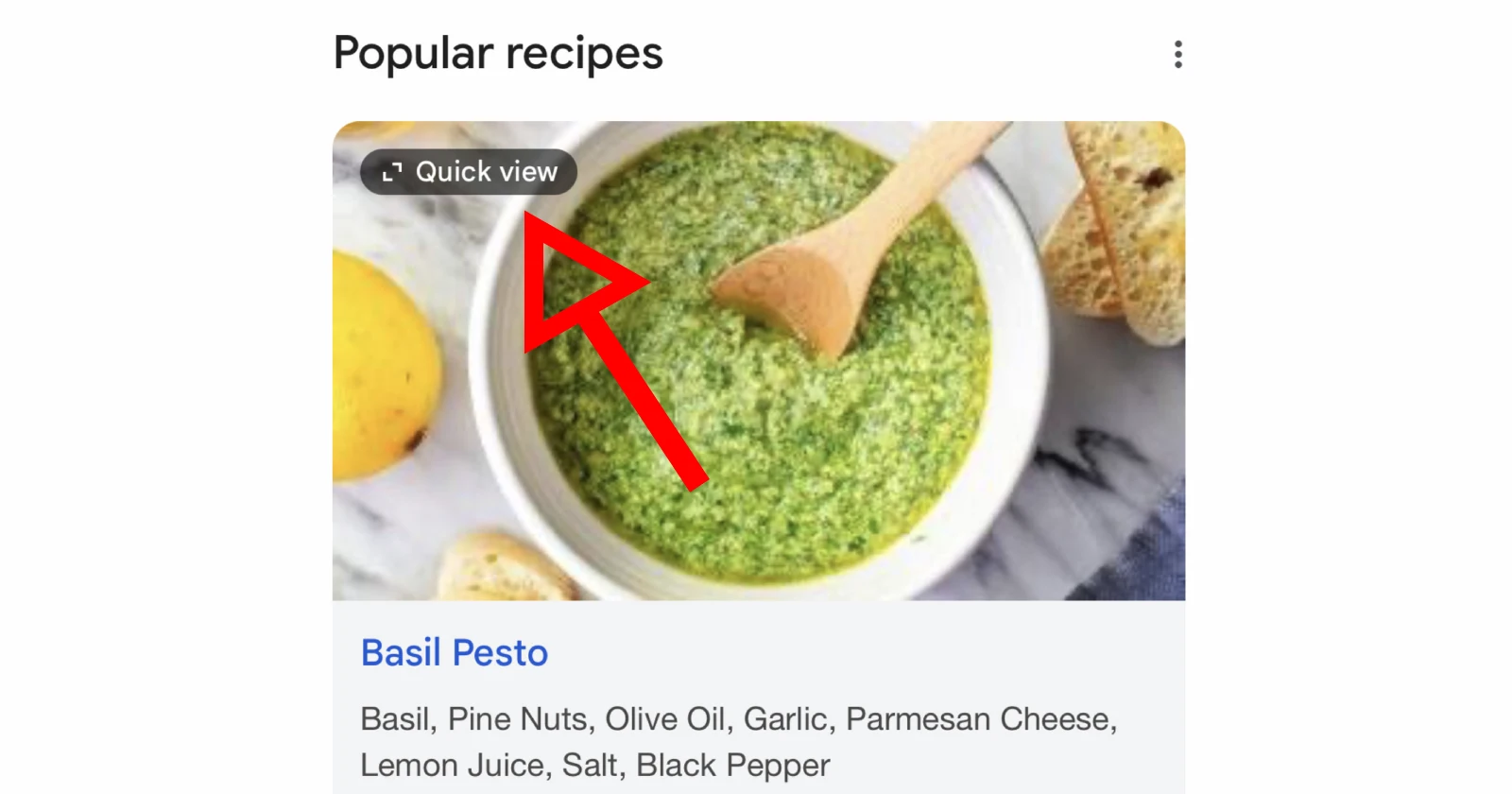This is an early-stage experiment that we’re testing with a select number of creators. We have test agreements in place for this initial phase, but don’t have more to share right now.
— Google Search Central (@googlesearchc) October 10, 2024
Google’s latest Search experiment could spell trouble for food recipe sites. The company is testing a “Quick View” button in Search that displays recipe snapshots, potentially keeping users on Google’s platform instead of redirecting them to the recipe website.
The experiment, first reported by Barry Schwartz at Search Engine Roundtable, allows users to click on a “Quick View” button overlaying images in recipe search results. Instead of directing users to the original site, the button opens a Google-hosted page that displays the core recipe information—ingredients, instructions, and even user comments. While a “Visit site” button remains, it’s unlikely users will need to click through, as most of the valuable content is already presented.

This test is already raising alarms among recipe bloggers and website owners, who depend on search traffic for ad revenue and engagement. Tom Critchlow, an SEO expert, noted that Google is essentially “hijacking the site click” by extracting most of the page’s content. He shared his concerns with Schwartz, emphasizing that the experiment could significantly reduce website visits.
While this might seem like a convenient feature for users, publishers see it as Google overstepping. The Quick View button gives users what they need without ever landing on the actual website, which could result in a substantial drop in traffic—and revenue—for food bloggers and recipe sites. Even though we’re not sharing recipes out here, we certainly understand how this can lead to a substantial loss in the number of visitors websites can get. Who’s to say which industry Google will target next? Even the AI Overviews that were recently introduced bugged out many publishers and users.
Google has acknowledged the experiment in response to a tweet from Schwartz, stating that it is an early-stage test with a limited number of creators. No further details are available at the moment. The company emphasized exploring new ways to deliver helpful content and provide value to the web ecosystem.
As expected, reactions on social media have been overwhelmingly critical, with users accusing Google of “stealing” content and making it harder for websites to generate traffic. Comments like “That’s theft” and “This DOJ breakup cannot come soon enough. These people are out control!” reflect a growing frustration with the tech giant’s handling of search results.
With this, it seems like Google’s digging its own grave. It’s just showing more proof of it having the power to control large parts of the internet, which definitely makes it a monopoly. If Google rolls out this feature more widely, it could have serious implications for recipe sites and potentially other content-driven industries. For now, publishers are left waiting to see whether this experiment becomes a permanent fixture—and what it might mean for their bottom lines.
TechIssuesToday primarily focuses on publishing 'breaking' or 'exclusive' tech news. This means, we are usually the first news website on the whole Internet to highlight the topics we cover daily. So far, our stories have been picked up by many mainstream technology publications like The Verge, Macrumors, Forbes, etc. To know more, head here.


